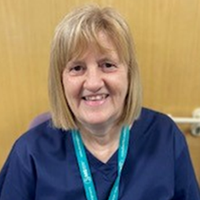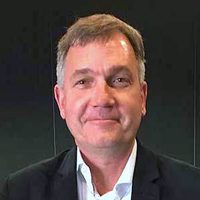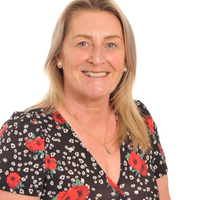Event
Supported Self-Management in Multiple Sclerosis
This is a virtual educational course aimed at healthcare professionals and service providers and is designed to educate and share best practice on different approaches to supported self-management (SSM) in multiple sclerosis (MS).
The content of this course is intended for healthcare professionals only.
Background
Demands on the NHS are stretching its workforce to new levels, meaning that capacity of service provision for all disease areas, including MS, in the UK are under pressure.
Part of the NHS Long Term Plan to tackle this issue is emphasised with the importance of personalised care in helping to reduce health inequalities and support the future sustainability of the healthcare system. Universal personalised care is the proposed delivery plan towards making personalised care ‘business as usual’ for 2.5 million people by 2024.1
Supported self-management is a large part of the NHS Long Term Plan’s commitment to realise the importance of personalised care. 2 The term ‘Supported Self-Management’ refers to the ways that healthcare services can encourage, support, and empower people to manage their ongoing physical and mental conditions themselves. It has been shown that when healthcare is designed to support self-management, people with long-term health conditions and their carers play a more active role in managing their own health. This can mean making lifestyle changes to ensure people have the required knowledge, skills, and confidence to manage not only their long-term health conditions but also the practical and emotional impact it has on their lives. When this happens, people enjoy life more, have less pain, have improved clinical outcomes and use healthcare services less. For people with long-term health conditions, this provides a host of benefits ranging from a more flexible and healthier lifestyle to savings in time and money on hospital visits.3 It also has positive emotional and psychological benefits for example hope and resilience can increase grit in people with MS4 and SSM may help people with MS to feel less bound by some of the limits MS has placed on their lives.
By showcasing best practice within MS and in other disease areas such as Irritable Bowel Disease (IBD) where advances in supported self-management have brought the benefits to fruition, this series of educational modules aims to help drive service enhancement in line with the NHS Long Term Plan and ultimately, improve the quality of life for people with MS.
What will delegates learn?
This virtual course will cover 5 modules, each 1.5-2 hours long and will feature various expert speakers across a number of key themes identified by a panel of MS experts.
Delegates can expect to gain a deeper understanding of the importance of supported self management in MS from various points of view. Speakers will have a background in healthcare, health systems and most important of all, we will listen to and learn about the personal experience from people with MS
Who is this course for?
This course is aimed at healthcare professionals and service providers that have an interest in supported self-management within the MS community. It aims to enhance patient care by providing on-demand education to healthcare professionals interested in supported self-management, build a platform to share best practices and offer real-world ideas and solutions for the sustainability of quality care for people with MS.
Timeframe
All modules are now available.
Cost of the course
This is a free course for UK healthcare professionals and other relevant decision makers. To reserve a space on this course, please complete the registration form. Once your registration is confirmed, you will need to create an account on the Neurology Academy website, where the course content will appear.
Access to course resources
Delegates will be able to access the on-demand modules and resources for up to 12 months after the launch of the final module.
Date of prep: Jan 2023
Job code: UI-NONNI-00416
For more information on MS Academy & Merck’s collaborative working project, please visit: Merck UK & Collaborative Working (merckgroup.com)
References:
- NHS England – What is Personalised Care? https://www.england.nhs.uk/personalisedcare/what-is-personalised-care/ Last visited: 14 December 2022
- NHS Long Term Plan – first published: 7 January 2019 https://www.longtermplan.nhs.uk/ Last visited: 14 December 2022
- NHS England and NHS Improvement – Supported Self Management: Summary Guide. Published: March 2020 https://www.england.nhs.uk/wp-content/uploads/2020/03/supported-self-management-summary-guide.pdf Last visited: 14 December 2022
- Lee B, Rumrill P and Tansey TN (2022) Examining the Role of Resilience and Hope in Grit in Multiple Sclerosis. Front. Neurol. 13:875133. doi: 10.3389/fneur.2022.875133 https://www.frontiersin.org/articles/10.3389/fneur.2022.875133/full
Were you registered on this course?
Log in to access resources..
LoginOur partner

These webinars have been initiated, organised and funded by Merck in collaboration with MS Academy.
Speakers
 Prof Helen Ford
Prof Helen FordClinical professor of neurology, Leeds Teaching Hospitals/University of Leeds
 Dr Jonathan White
Dr Jonathan WhiteMedical advisor & event facilitator, Overcoming MS
 Joanne Hurford
Joanne HurfordOccupational therapist, University College London Hospitals NHS Foundation Trust
 Dr Therese Burke
Dr Therese BurkeClinical platform co-ordinator, MS Australia
 Prof Christine Norton
Prof Christine NortonProfessor of clinical nursing research, King’s College London
 Jo Johnson
Jo JohnsonIndependent clinical psychologist
 Marina Gonzalez del Rio
Marina Gonzalez del RioHead of the Nursing Research Unit, Dr. Josep Trueta University Hospital in Girona
 Prof Aisling Ryan
Prof Aisling RyanConsultant neurologist, Cork University Hospital
 Dr Agne Straukiene
Dr Agne StraukieneConsultant neurologist, Torbay and South Devon NHS Foundation Trust
 Rob Sloan
Rob SloanHead of insights, Shift.ms
 Bhawani Mainali
Bhawani MainaliMS clinical nurse specialist, Royal Free London NHS Foundation Trust
 Gale Metcalfe
Gale MetcalfeMS specialist nurse, Leeds Teaching Hospitals NHS Trust
 Zoey Steele
Zoey SteeleTeaching assistant at King Edward the VII secondary school in Sheffield.
 Denise Owen
Denise OwenMS nurse specialist
 Ruth Stross
Ruth StrossDirector of services, MS Trust
 Prof Gavin Giovannoni
Prof Gavin GiovannoniProfessor of neurology, Barts and The London School of Medicine and Dentistry
 Michelle Davies
Michelle DaviesDorset MS service lead & specialist practitioner, University Hospitals Dorset NHS Foundation Trust
 Dr Javier Carod Artal
Dr Javier Carod ArtalConsultant neurologist, Raigmore Hospital, NHS Highland
 Del Thomas
Del ThomasLead MS CNS and community neuro CNS manager, Wye Valley NHS Trust
 Audrey Owen
Audrey OwenMS specialist nurse, District General Hospital
Encouraging excellence, developing leaders, inspiring change
MS Academy was established in 2016 and in that time has accomplished a huge amount with exciting feedback demonstrating delegates feel inspired and energised along their personal and service development journeys. The various different levels of specialist MS training we offer are dedicated to case-based learning and practical application of cutting edge research.